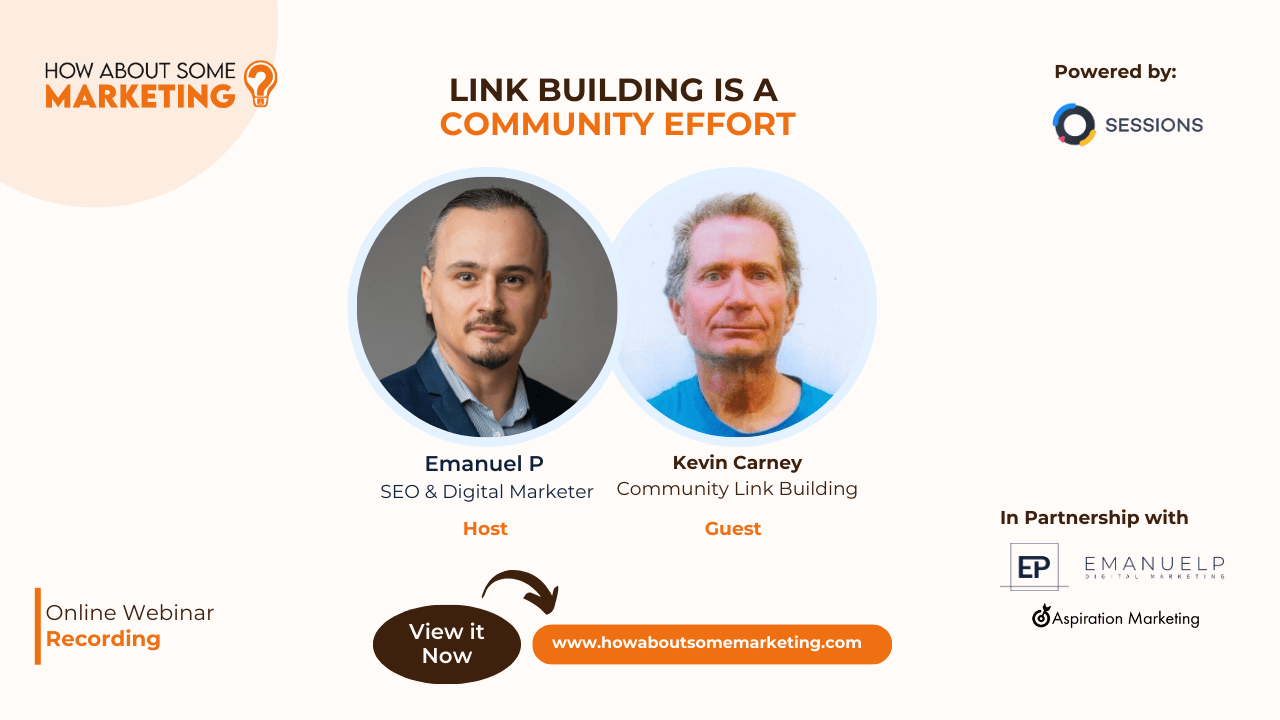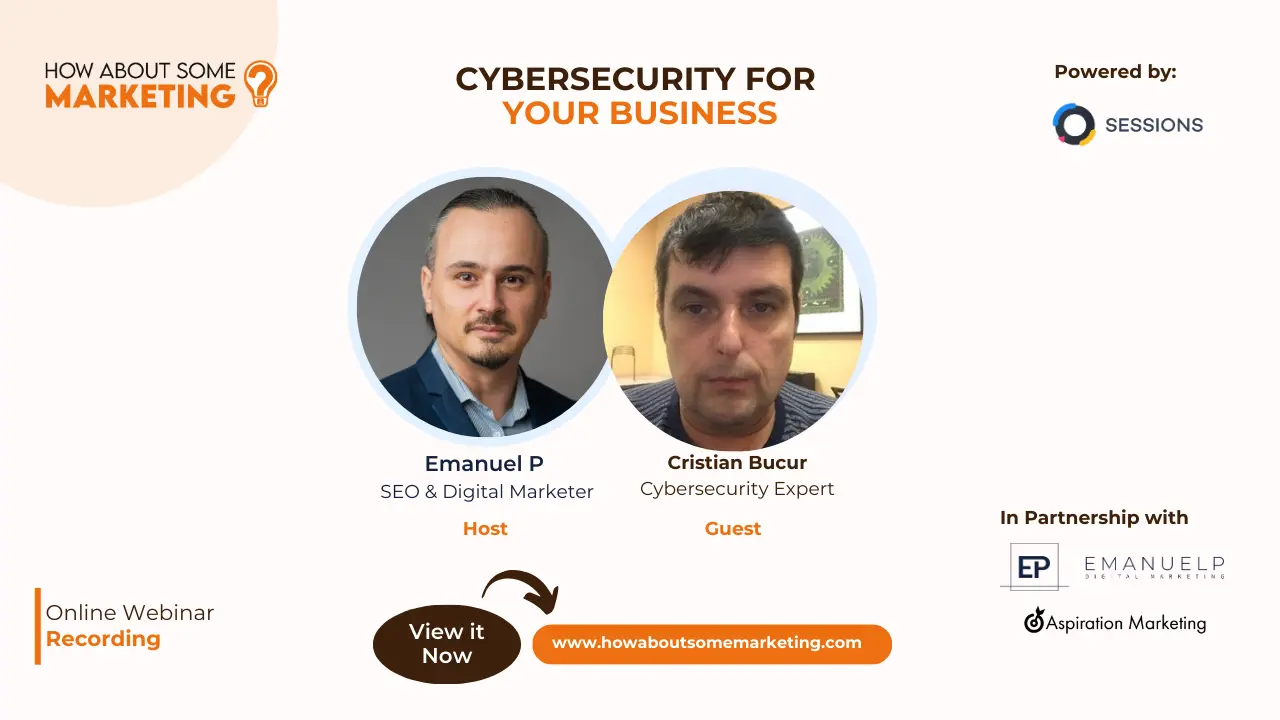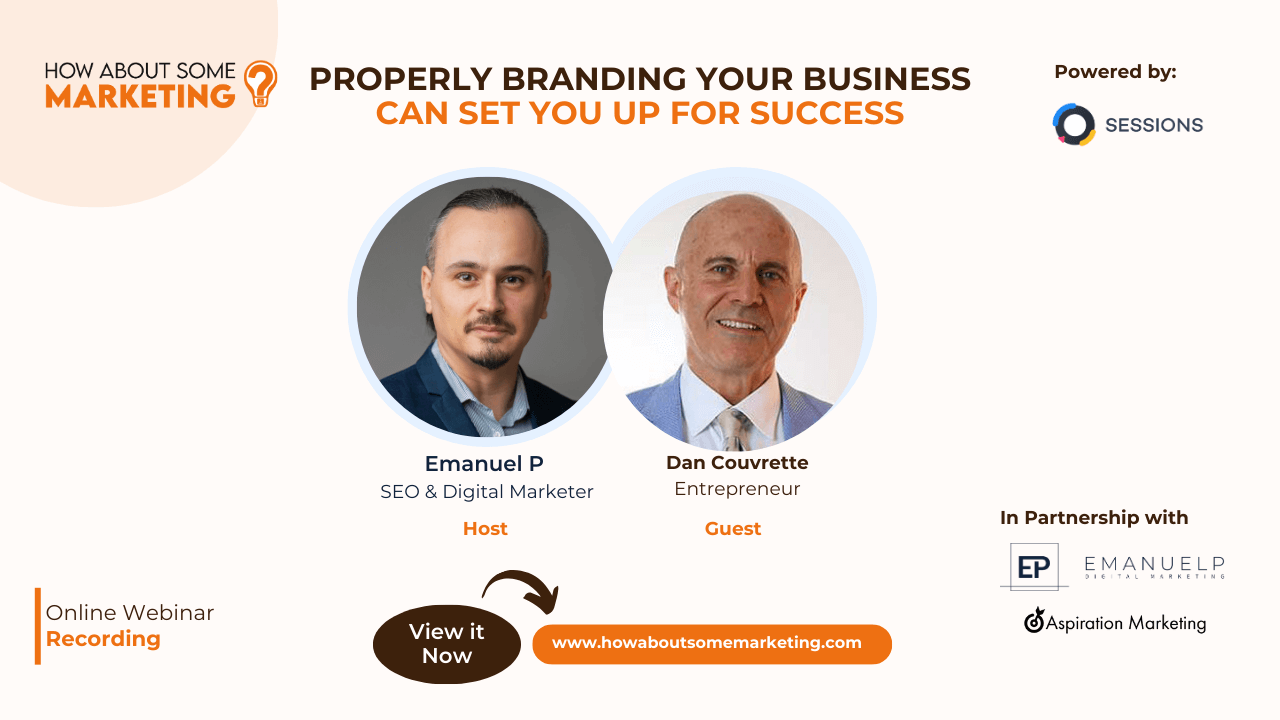In this insightful webinar hosted by Emanuel Petrescu, we dive deep into the world of SEO strategies with Kevin Carney, a renowned expert in organic growth and link building. Discover the secrets behind link earning, entity SEO, and Google’s algorithms, and gain valuable insights on how to optimize your website for increased visibility and search engine rankings. Whether you’re a small business owner or a digital marketing professional, this session is a must-watch to stay ahead of the game in the ever-evolving world of SEO.
Show Notes
Introduction:
This webinar hosted by Emanuel Petrescu features guest speakers Kevin Carney and Joachim Koch discussing SEO strategies like link building and improving website authority through quality content and backlinks. Listeners can expect to learn the history behind how links became integral to Google’s search algorithm, differences between link building vs link earning, how to become an SEO “entity”, and more.
Main Discussion Points:
- How links and citations between academic papers inspired early search engine development at Google (00:05:30)
- Link profiles showing you are “known by the right people” help improve search rank (00:09:48)
- Transition from focusing just on websites to establishing yourself as an SEO “entity” (00:11:18)
- Building relationships and links between entities to resemble real-world connections (00:11:35)
- Difference between transactional “link building” and earning links naturally over time (00:13:46)
- Introduction to Kevin’s platform for building a community around ethical link earning (00:21:02)
Guest Bios:
Kevin Carney is the founder of Organic Growth, an SEO company focused on link earning strategies for small businesses. He has over 10 years experience in SEO and digital marketing.
Key Quotes:
“Links show that you’re known by the right people.” (00:09:48)
“Google is moving us from strings to things.” (00:10:45)
“It’s not what you know, it’s who knows you.” (00:17:08)
Connect with Kevin
- LinkedIn 👉 https://www.linkedin.com/in/kevinbcarney/
- Twitter 👉 https://twitter.com/kevinbcarney
- YouTube 👉 https://www.youtube.com/channel/UCCg6IhMqi6qLRbNusYeRusw
- Website 👉 https://organicgrowth.biz/
How About Some Marketing? On Social
- Subscribe to the newsletter 👉 https://www.howaboutsomemarketing.com/
- Subscribe On YouTube 👉 https://www.youtube.com/@howaboutsomemarketing
- Follow Us On Instagram 👉 https://www.instagram.com/howaboutsomemarketing/
- Follow Us On X 👉 https://twitter.com/hasomemarketing
- Follow Us On LinkedIn 👉 https://www.linkedin.com/company/howaboutsomemarketing/
- Like 👍 Us on Facebook 👉 https://www.facebook.com/howaboutsomemarketing
- Join Our Free Facebook & LinkedIn Groups https://linktr.ee/howaboutsomemarketing
- Follow Us On Pinterest 👉 https://www.pinterest.com/howaboutsomemarketing/
- Follow Us On TikTok 👉 https://www.tiktok.com/@howaboutsomemarketing
About Emanuel P – How About Some Marketing? Founder and Host
Emanuel Petrescu is a Toronto SEO consultant passionate about helping businesses enhance their reputation and online footprint. He has substantial experience managing websites and developing and implementing SEO strategies. His area of expertise lies in SEO Audits, a subject on which he has developed a comprehensive educational course.
- Emanuel’s website 👉 https://emanuelp.com/
- Emanuel On YouTube 👉 / @emanuelp986
- Emanuel On LinkedIn 👉 https://www.linkedin.com/in/emanuelp986/
- Emanuel On Twitter 👉 https://twitter.com/emanuelp986



